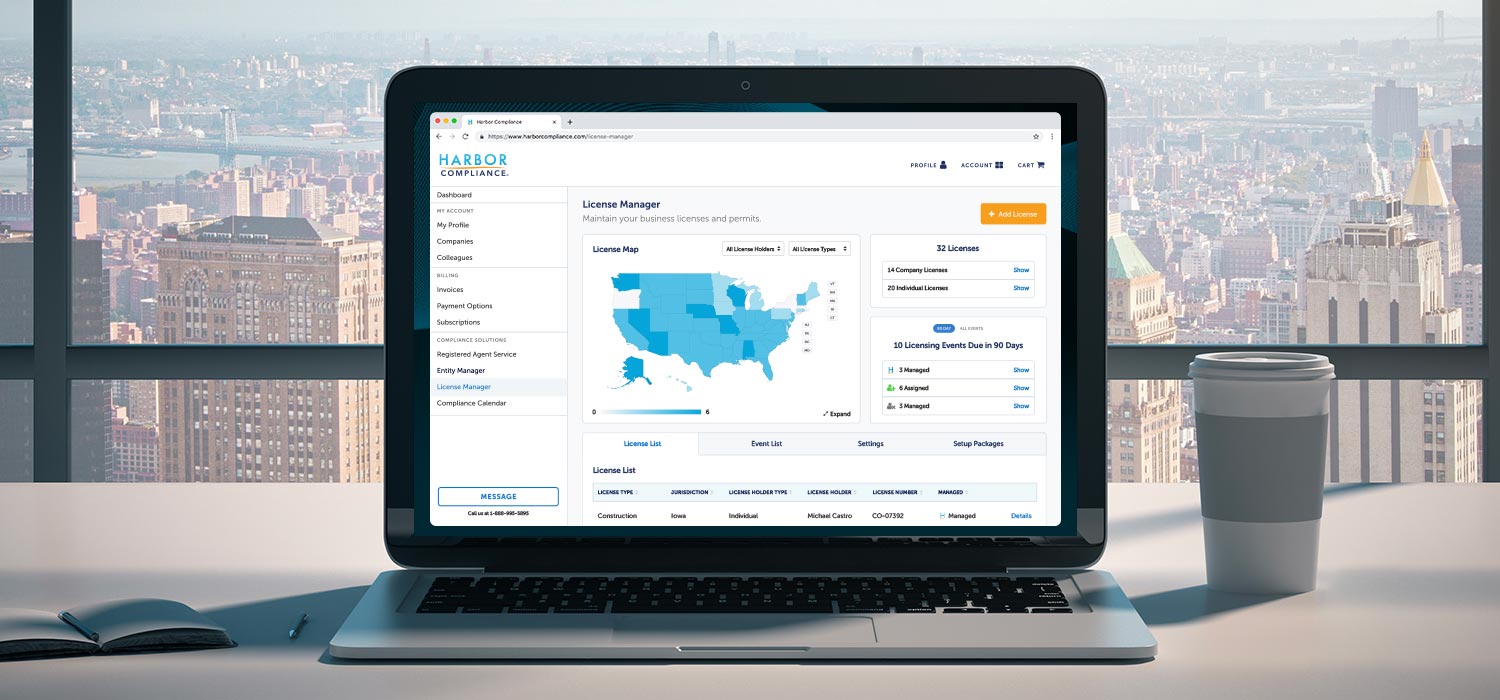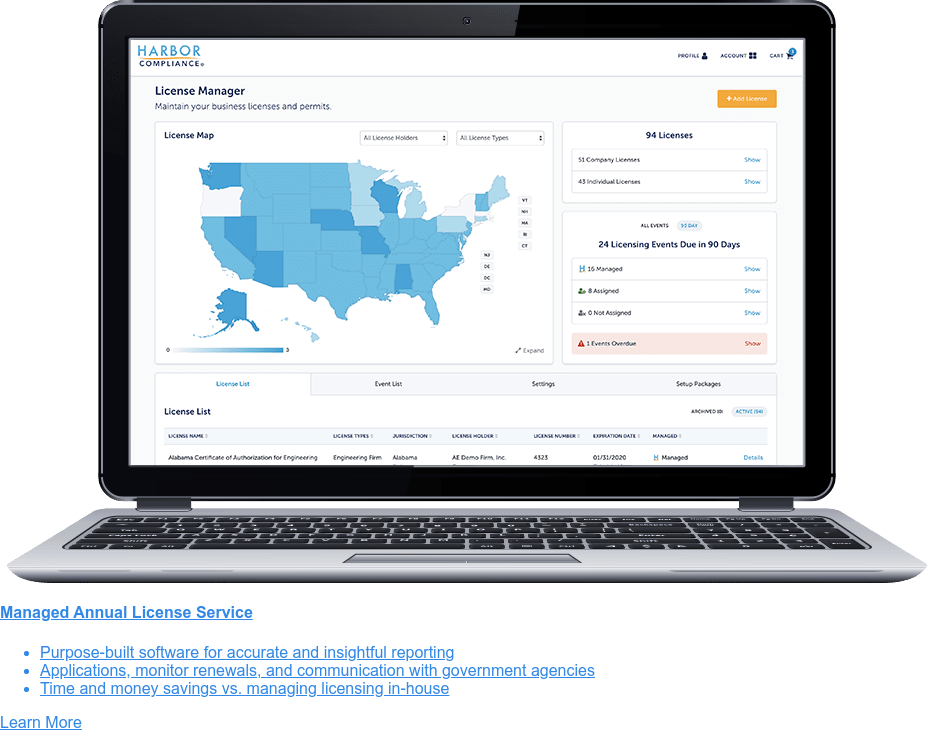
Vermont Engineering Industry Licensing

Licensing requirements for engineering industry firms and individuals in Vermont.
This page provides an overview of engineering industry licensing in Vermont for individuals and firms. You will find state requirements, application fees, filing instructions, and more. For assistance with licensing, please contact us to learn about our software and managed license services.

Company Licenses
Vermont Engineering Company Licenses
Vermont Engineering Firm License
Not required
Engineering Firm licensure is not required on the State level in Vermont.
Firm licenses are not issued at the state level, however, a licensed individual must oversee all engineering work. Firms should consult board rules and state statutes before doing business.
More information: Vermont Board of Professional Engineering| Law: | |
| Eligible Entity Types: |
|
| Ownership Requirements: | Business Corporations:
Professional Corporations:
Limited Liability Companies:
Professional Limited Liability Companies:
Partnerships:
|
Vermont Geology Firm License
Not required
Geoscience Firm licensure is not required on the State level in Vermont.
Vermont Land Surveying License
Not required
Land Surveying Firm licensure is not required on the State level in Vermont.
Firm licenses are not issued at the state level, however, a licensed individual must oversee all surveying work. Firms should consult board rules and state statutes before doing business.
More information: Vermont Board of Land SurveyingIndividual Licenses
Vermont Individual Engineering Licenses
Vermont Geologist License
Not required
Professional Geoscientist licensure is not required on the State level in Vermont.
Vermont Professional Engineer License
Initial Registration
| Filing Method: | |
| Agency Fee: | $80 |
Registration Renewal
| Filing Method: | |
| Agency Fee: | $100 |
| Due: | By July 31 of even-numbered years. |
Learn about engineering licensing in other states:
Design Firm - Engineering firm registration is sometimes grouped with architecture and land surveying on a single “design firm” application form.
EI (Engineering Intern) - A term also used to describe an Engineer in Training.
EIT (Engineer in Training) - A professional designation granted upon having completed at least 3 years of school at an ABET-accredited university and having passed the FE exam.
FE (Fundamentals of Engineering) - An exam testing on basic engineering principles that is required to become an engineer in training.
PE (Professional Engineer or 'Principles and Practice in Engineering') - Means either Professional Engineer or refers to the Principles and Practice in Engineering exam that is a prerequisite for an engineering license.
Reciprocity - When a licensed engineer in one state can provide documentation (often an NCEES Record) to more easily apply for a license in another jurisdiction.
Accreditation Board for Engineering and Technology (ABET)
Accrediting board that sets standards for university programs in a variety of applied science disciplines.
American Council of Engineering Companies (ACEC)
Engineering, architecture, and land surveying advocacy group.
American Society of Civil Engineers (ASCE)
Organization that provides continuing education, professional conferences, and advocacy efforts to the civil engineering community.
American Society of Mechanical Engineers (ASME)
Mechanical engineering organization that focuses on education and professional development.
Engineering Accreditation Commission (EAC)
Reviews accreditation requirements and makes final decisions regarding the accreditation process.
National Council of Examiners for Engineering & Surveying (NCEES)
Develops, administers, and scores the exams used for engineering licenses.
National Society of Professional Engineers (NSPE)
NSPE is an advocacy group for professional engineers.




